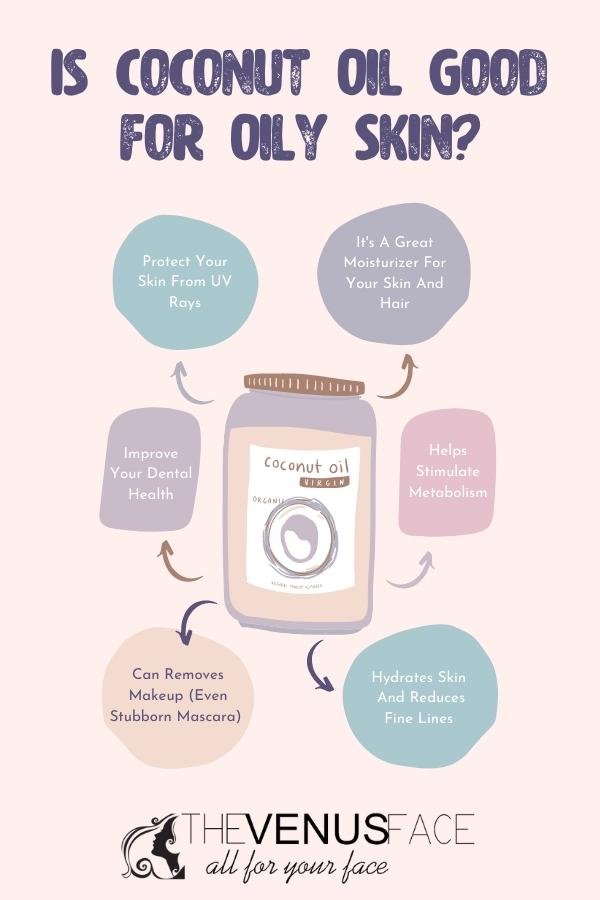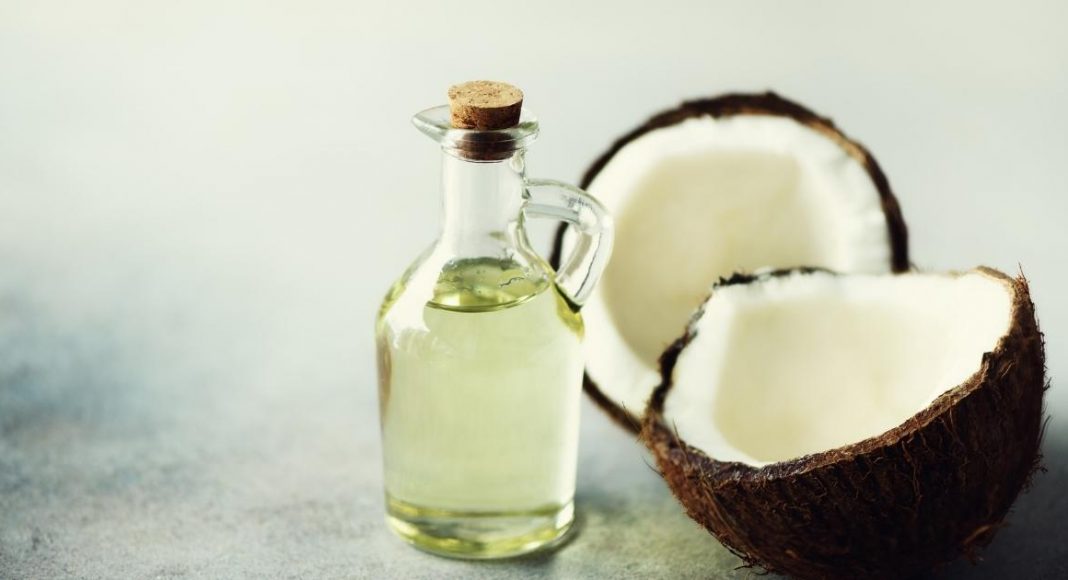Is coconut oil good for oily skin? Learn more in this post.
Oily skin is one of the most common skin types. People with oily skin have larger pores and produce more sebum, or oil, than those with other skin types. While oily skin has its benefits – it is less likely to show signs of aging and is more resistant to environmental damage – it can also be difficult to manage. Oily skin is prone to breakouts and can be difficult to keep clean and free of shine.
Because of the uncomfortable and sometimes embarrassing symptoms, many people with oily skin are looking for ways to reduce sebum production and control shine. Some look for store-bought solutions, while others may turn to natural remedies.
Coconut oil, which is one of the natural ingredients, is a type of oil that is derived from the flesh of coconuts. Unlike other oils, this oil is composed mostly of saturated fat. Coconut oil has a number of properties that make it beneficial for the skin. However, is coconut oil good for oily skin?

As an Amazon Associate, I earn from qualifying purchases.
Does coconut oil help oily skin?
No, it doesn’t. Although coconut oil has a number of benefits for the skin, it can actually make oily skin worse. This is because coconut oil is comedogenic, meaning that it can clog pores. When pores are blocked, sebum production increases, leading to even more oily skin. In addition, coconut oil can also cause acne breakouts.
So, if you have oily skin, you should avoid using coconut oil. There are other natural ingredients that can help to reduce sebum production and control shine, without making your skin worse. Try using aloe vera gel, jojoba oil, or witch hazel instead.
Coconut oil benefits for the skin
With that being said, there are several benefits that coconut oil can offer the skin.
Moisturizing
This oil is an excellent moisturizer. It can help to hydrate and nourish the skin, which is perfect for dry skin. It can also help to protect the skin from environmental damage.
Anti-inflammatory
Coconut oil can help to reduce inflammation. This is beneficial for those with conditions like psoriasis and eczema.
Antioxidant
This oil is also an antioxidant thanks to its Phenolic compound. This means that it can help to protect the skin from free radical damage, which can lead to wrinkles and other signs of aging.
Soothing the skin
It can also help to soothe the skin. It can be used to relieve sunburns, rashes, and other skin irritations.
Makeup remover
Coconut oil can also be used as a natural makeup remover. Just apply a small amount to a cotton ball and gently wipe away makeup.
How to use coconut oil for oily skin
While it is not recommended to apply this oil directly to the skin, there are a few ways that you can use it.
Homemade Makeup Primer With Sea Salt & Coconut Oil
Ingredients:
- Sea salt (see recommended brand)
- Aloe vera juice (see recommended brand)
- Coconut oil (see recommended brand)
- Lavender oil (see recommended brand)
How to make: read this guide to learn the step-by-step process.
Homemade Scrub With Coffee & Coconut oil
Ingredients:
- Coffee powder (see recommended brand)
- Bentonite clay powder (see recommended brand)
- Coconut oil (see recommended brand)
How to make: read this guide to learn the step-by-step process.
DIY Face Moisturizer For Oily Skin With Coconut Oil
Ingredients:
- Coconut oil (see recommended brand)
- Vitamin E oil (see recommended brand)
- Lavender essential oil (see recommended brand)
How to make: read this guide to learn the step-by-step process.
Final thought
Maybe coconut oil is not ideal for people with oily skin, but it certainly has a number of benefits for the skin. If you have dry skin, you can use it as a moisturizer. You can also use it to remove makeup or as a primer before applying makeup. Just make sure that you don’t use too much, as it can clog pores and lead to breakouts.
For oily skin, you can still use this oil, but you need to use it as an ingredient in recipes. You can also add it to your bathwater to help soothe the skin. Just make sure that you don’t apply it directly on the skin, as it can make your skin worse.
F.A.Q
Is coconut oil non-comedogenic?
Yes, it is. Coconut oil has a comedogenic rating of 4.
Does coconut oil clog pores?
Yes, it does. Because of the high comedogenic rating, coconut oil is known to clog pores, which can lead to acne breakouts.
What are some alternatives to coconut oil for oily skin?
Some alternatives include jojoba oil, aloe vera gel, and witch hazel. These ingredients can help to control shine and sebum production, without making the skin worse.


